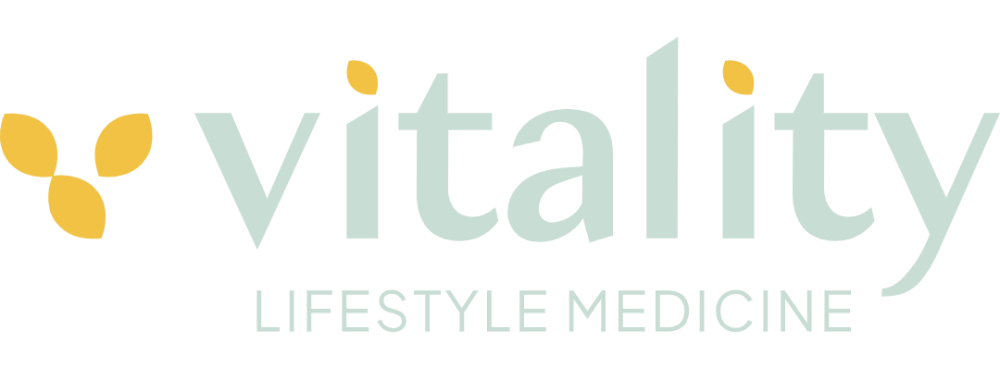Say Yes to Your Health
Sep 09, 2025
Say Yes to Your Health
For generations, women have been expected to prioritise their own health. We care for everyone else—our children, partners, aging parents, patients, and colleagues—but when it comes to looking after ourselves, we often minimise, delay, or ignore our own needs.
We tell ourselves:
“I’ll get to it later.”
“I just need to get through this week.”
“It’s probably nothing.”
This habit isn’t just a personality quirk or poor time management. It’s something that’s been culturally reinforced for decades. And the consequences are showing up everywhere—from delayed diagnoses to widespread burnout, unrecognised pain, and the systemic under-researching of women’s health conditions.
As we mark Women’s Health Week, it’s time to challenge this pattern and start saying yes—to ourselves, our health, and the care we deserve.
The Health Gap Is Real—and It’s Not Your Fault
The data tells an obvious story: women are more likely to delay or forgo their own health care, not because they don’t care, but because they are carrying more of the unpaid and emotional workload in our homes and communities.
According to the Australian Bureau of Statistics (2022), women perform an average of 21 hours more unpaid work per week than men. That includes housework, meal preparation, child-rearing, caring for elderly relatives, and other invisible labour that quietly wastes time, energy, and mental space.
Single mothers are now one of Australia's fastest-growing demographics of full-time working women. Many women in their 40s, 50s, and 60s are juggling professional responsibilities while caring for children and aging parents—a phenomenon commonly called the sandwich generation.
When women finally do get to their doctors, the health system isn’t always designed to meet their needs.
Research consistently shows that women are underrepresented in medical studies:
- Only 33% of cardiovascular clinical trial participants are women.
- Many studies exclude women who are pregnant, perimenopausal, or post-menopausal.
- Experiences like hysterectomy, menopause, pelvic pain, and hormonal shifts are often overlooked or misunderstood in clinical practice.
These gaps have consequences. Conditions like heart disease, autoimmune disorders, endometriosis, and post-hysterectomy complications can be missed or mismanaged simply because women’s symptoms present differently—or are dismissed altogether.
When Symptoms Are Normalised, Care Gets Delayed
It’s not unusual for women to be told that their symptoms are just part of life.
Fatigue? Probably stress.
Brain fog? Try getting more sleep.
Pelvic pain? That’s normal after childbirth.
Heavy bleeding? Common at your age.
Incontinence? Just don’t laugh too hard.
We internalise these messages. We brush things off. We try to manage on our own.
But common doesn’t mean normal—and ignoring your health doesn’t make you stronger. It just makes you more vulnerable to burnout, delayed diagnoses, and preventable complications.
Women Deserve a Different Approach to Health
Saying yes to your health doesn’t require a dramatic overhaul. It starts with recognising that your needs matter, even if no one else puts them first.
Women in midlife are often navigating major physical and emotional transitions. Hormonal changes, hysterectomy recovery, perimenopause, sleep disruption, changing metabolism, and increased caregiving demands can all converge at once. These changes can leave women feeling invisible, overwhelmed, or broken without support.
The reality is, there’s nothing broken about you. You just need better tools—and permission to prioritise your health.
What Saying Yes to Your Health Really Looks Like
This isn’t about booking a spa day or trying the latest wellness trend. Saying yes to your health means taking your body, symptoms, and experiences seriously.
It might look like:
- Booking the check-up you’ve been putting off
- Getting blood tests to explore ongoing fatigue
- Asking your doctor about MHT if you’re struggling with perimenopause symptoms
- Seeing a pelvic floor physiotherapist after surgery, birth, or injury
- Understanding how your gut health impacts your mood, energy, and hormones
- Saying no to unnecessary commitments so you can rest or recover
Saying yes to your health is not a luxury—it’s a necessity. And it’s often the first step toward healing, clarity, and energy you didn’t realise was possible.
Small Changes Can Lead to Big Results
You don’t have to fix everything this week. But you can start with one small action, honouring your body and needs.
That might be:
- Taking a short walk in the morning
- Prioritising sleep over late-night scrolling
- Saying no to something that drains you
- Drinking water and eating food that nourishes you
- Starting a conversation with your doctor about symptoms you’ve been tolerating
Small, consistent actions are what drive sustainable health changes. They also send a powerful message to your brain: I matter.
Say Yes to You—This Week and Beyond
Women’s Health Week is a great reminder, but it shouldn’t be the only time you consider your own well-being. Your health deserves attention all year round, not just in response to a crisis or collapse.
The system may not always prioritise women’s health, but that doesn’t mean you can’t. In fact, reclaiming your health—on your terms—is one of the most impactful things you can do for yourself, your family, and your future.
You don’t need to wait until everything else is sorted. You don’t need permission.
You just need to say yes.

